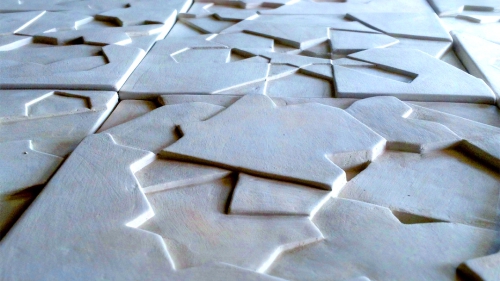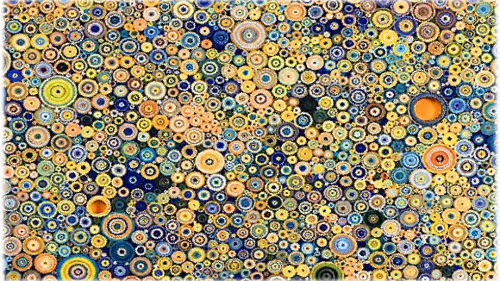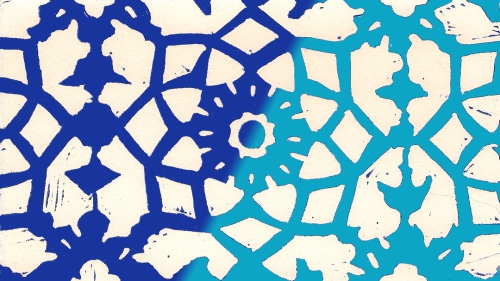The beggar boys of Senegal
The traveler to Senegal is warned not to give money to street beggars, as it is said they will only swarm you for more.
It's true. There are beggars aplenty; ragged boys, most of them under 12-years old. They shake red cans the size of coffee tins. Whether you're stopped in a taxi in traffic or walking across the Plaza de Independence in downtown Dakar, the boys descend cans in hand. The visitor's heart goes out naturally to these children, some of them three, four and five-years-old, for begging is their way to survive.
Some of the beggars are old and bent, their right hands held out, palms up, sometimes jingling a few coins. It's hard to know if they are grizzled forty-year-olds or if they are indeed as ancient as their looks. These are mostly women. Life expectancy for women in Senegal is 60 years and they have an average of six children each; mouths they cannot feed.
For most Senegalese life has been hard. By all standards but the cruelest, these are indeed people in need. Senegal, like the rest of sub-Saharan West Africa, is just pulling out of the economic disaster brought on by the drought of the 1970s. Groundnut (peanut), mango, millet and other crops have only recently again become abundant. For close to 20 years the Senegalese economy and its society have suffered. Frustrated farmers moved en masse to the cities looking for work where unemployment is rampant. Among urban youth the rate is 40 percent according to 1997 statistics. As a result juvenile delinquency and drug addiction abound.
Amid the poverty there is, however, hope. This hope comes from Senegal's Muslim Brotherhoods, to which most Senegalese belong either nominally or actively. The Brotherhoods are historic establishments, dating back more than two hundred years. The founders of these groups were Sufis, dedicated to the emancipation of their people from colonial influences. More importantly, they were African; Africans leading Africans toward self-determination and independence.
El Hajj Elijah Malik, founder of the Tijane, and Ahmadou Bamba, founder of the Mouride, are the two most famous fathers of the brotherhoods. They were learned men who could read Arabic and were scholars of Qur'an (Islam's holy book) Hadith (sayings attributed to the Prophet Muhammad). The Tijane today are known for teaching Qur'an and Tijani students have won international Qur'anic recitation competitions
Bamba is legendary for his poetry. Volumes and volumes of his work line the library shelves in the city of Touba where he is buried. His followers are known for reaching states of spiritual ecstasy while reciting Bamba's poems.
The Brotherhoods (and there are others) provide a social structure for the people of Senegal with their clear, hierarchical leadership and loyalty. The leader, the Cheick, commands complete devotion from his followers. He and his deputies may instruct them not only in religious matters but personal and political ones as well; such as for whom a person should vote.
In Dakar, as throughout Senegal, there are sandy schoolyards just off the main road. These schools are run by the Brotherhoods. Here dozens of children attend Arabic and Qur'anic classes during summer vacation. To these schools they return during the school year at the end of the secular school day and on weekends. The students, or talibe, sit on mats in the sand facing teachers who point to Arabic script on makeshift blackboards. The letters and sounds are drilled in rhythm, eventually put together in phrases such as "bismillah ar-rahman ar-raheem," which translated means "In the name of God, most gracious, most merciful." Here they may be fed. Here they should be safe. But children on their own remain vulnerable.
These unfortunate talibe are often children who were sent to the city by parents unable to house and feed them in rural villages. They leave their academic enclaves every day to "earn money" in the streets by begging. The monies collected in their red-covered tins are returned to the schools -- in principal -- and used to perpetuate their upkeep.
So, in spite of warnings to travelers, giving to street children will not "encourage them." For in a society with no welfare system, the Muslim Brotherhoods help sustain survival of the neediest. And that is why it is OK to give to the beggars. They need it. And a little goes a long way in Senegal.
Anisa Mehdi is an independent journalist who is also a contributing correspondent for Public Television's Religion and Ethics NewsWeekly.








